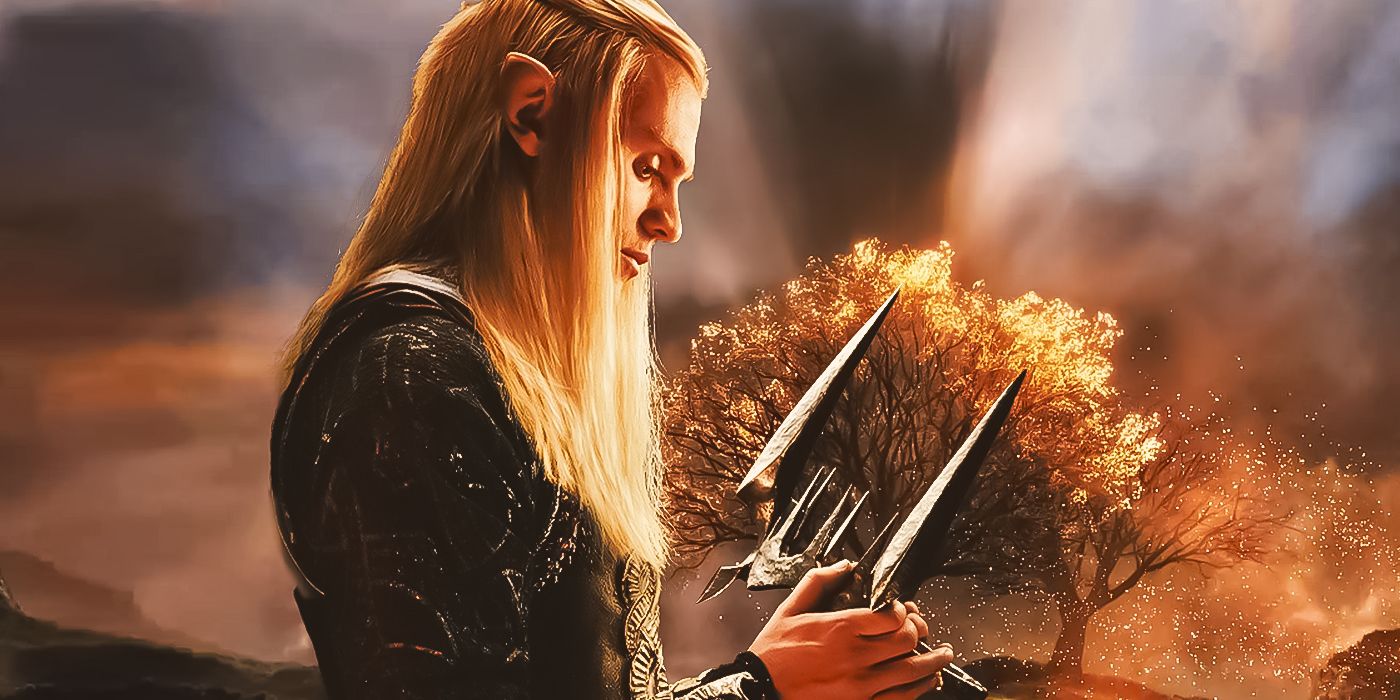
The forger of the One Ring, Sauron, has been the major evil force presented throughout J.R.R. Tolkien‘s The Lord of the Rings books and Peter Jackson‘s iconic film trilogy adaptation. With Amazon Studios’ The Rings of Power, the narrative leaps back to the Second Age to explore Sauron’s origins and the events that would send Bilbo Baggins on his unexpected journey in The Hobbit. Thrillingly so, the epic fantasy show also introduces audiences to the very first Dark Lord of Middle-earth.
Morgoth, originally named Melkor, is one of the most significant and malevolent figures in J.R.R. Tolkien’s mythological universe. He is the ultimate source of evil in Middle-earth and beyond, predating Sauron, who was merely his servant. Morgoth’s actions and influence form the foundation of much of the conflict in Tolkien’s works, particularly in The Silmarillion. But where did Morgoth exactly come from, and what caused his demise?
Sauron’s Master, Morgoth, Was One of the Ainur — Divine Beings Created by Eru Ilúvatar
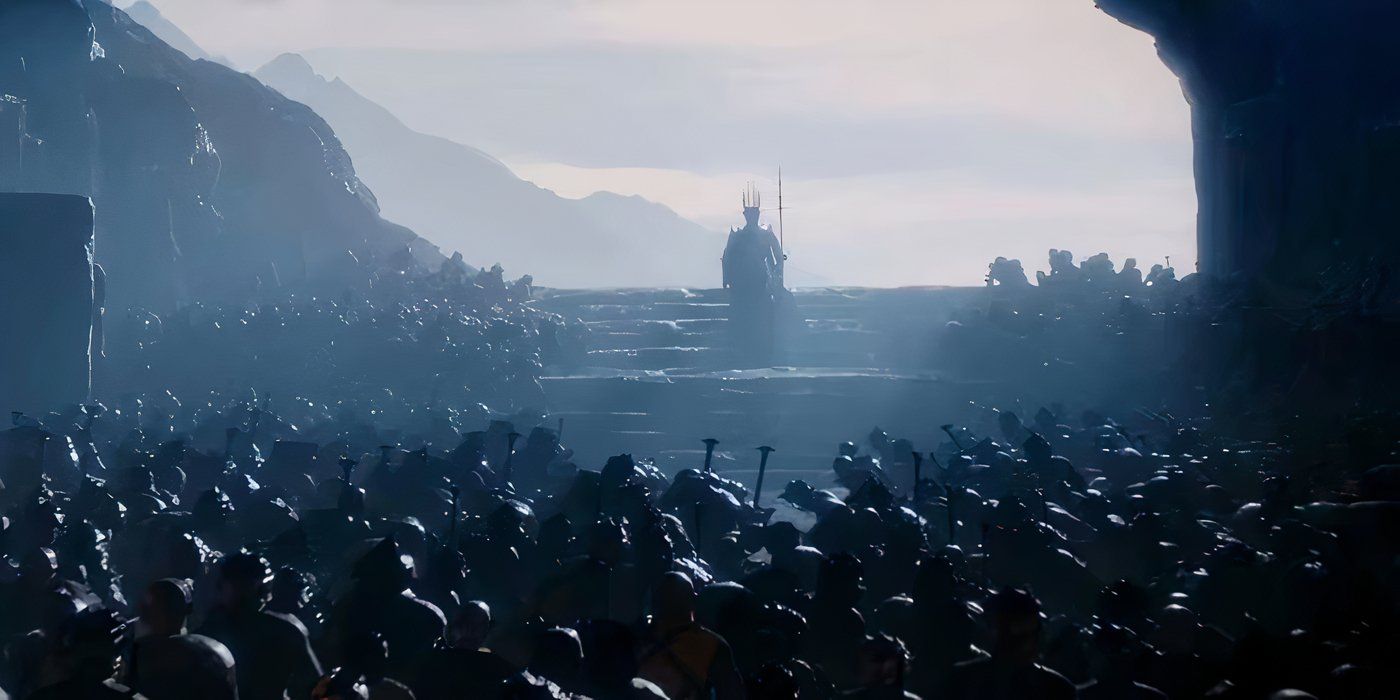
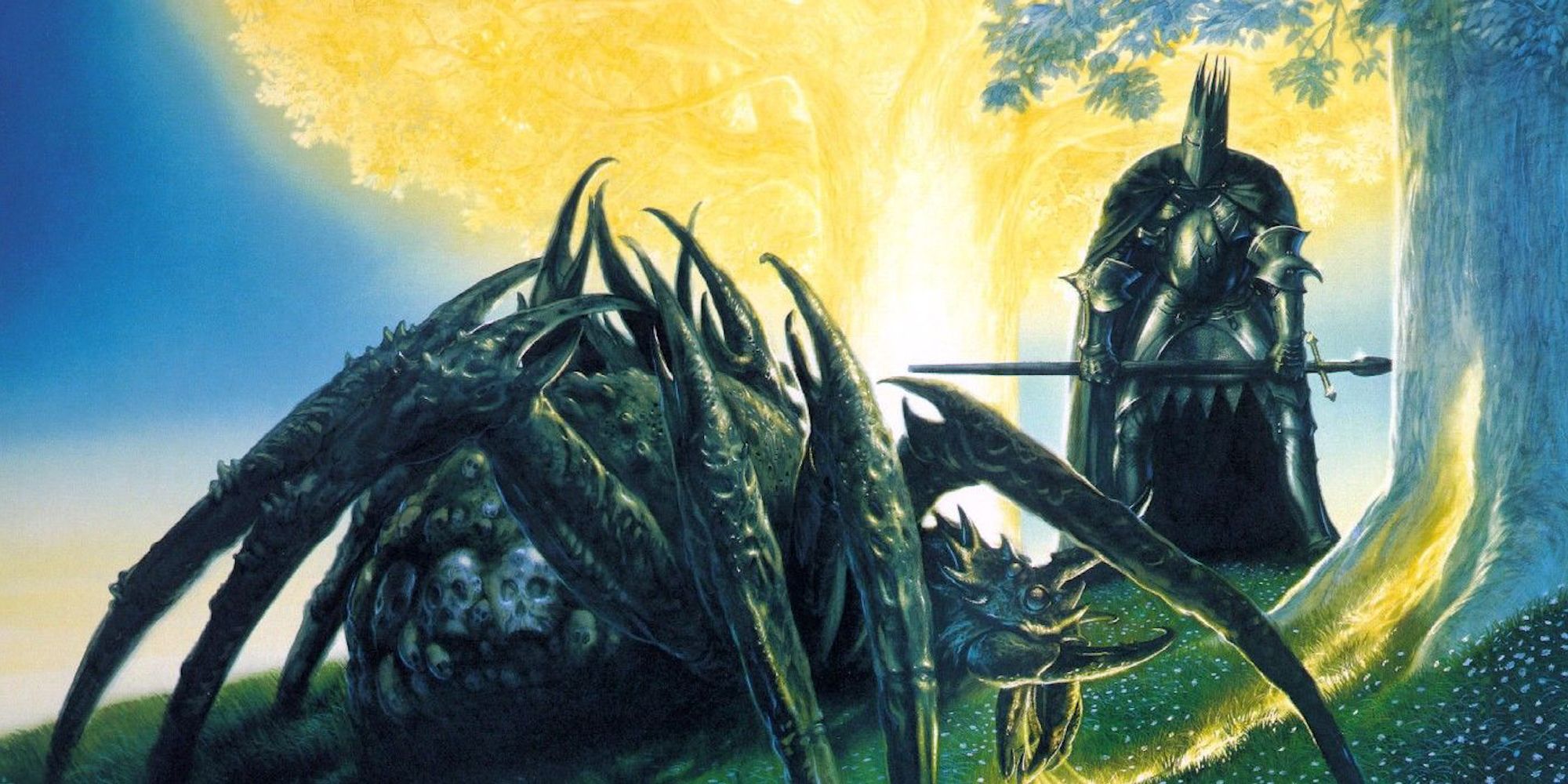
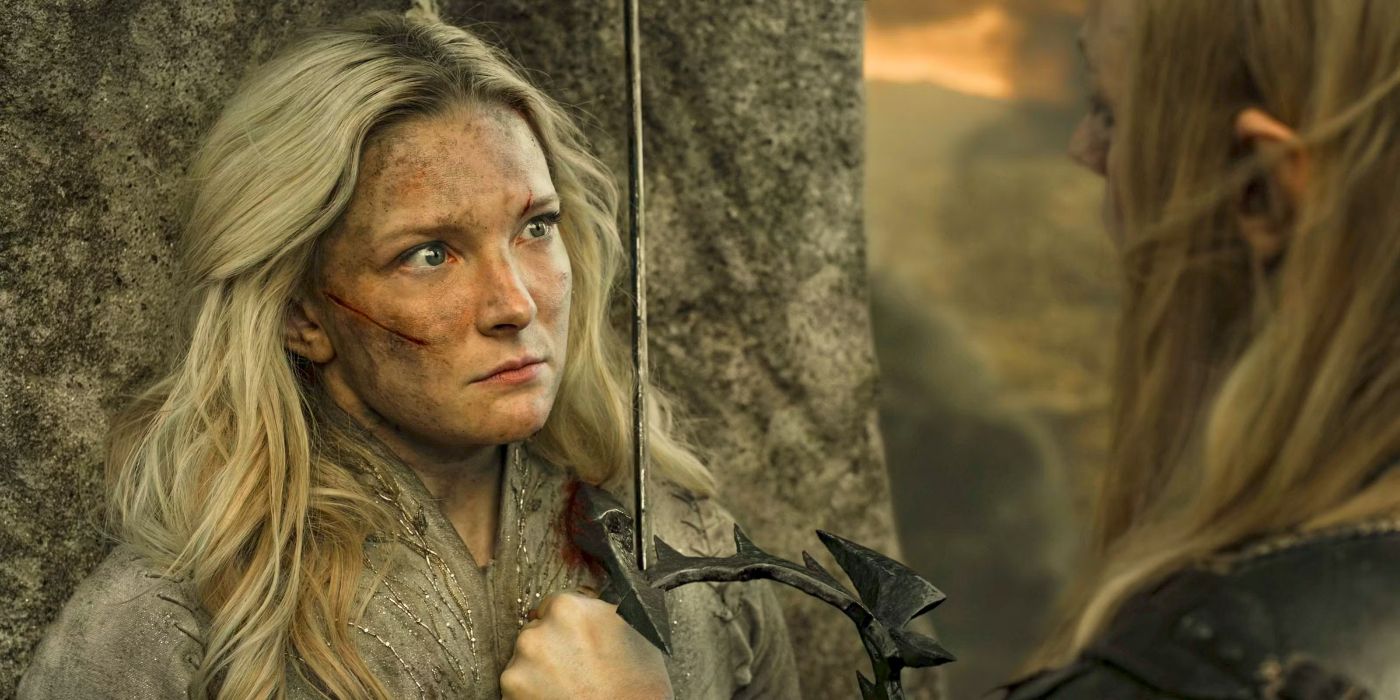
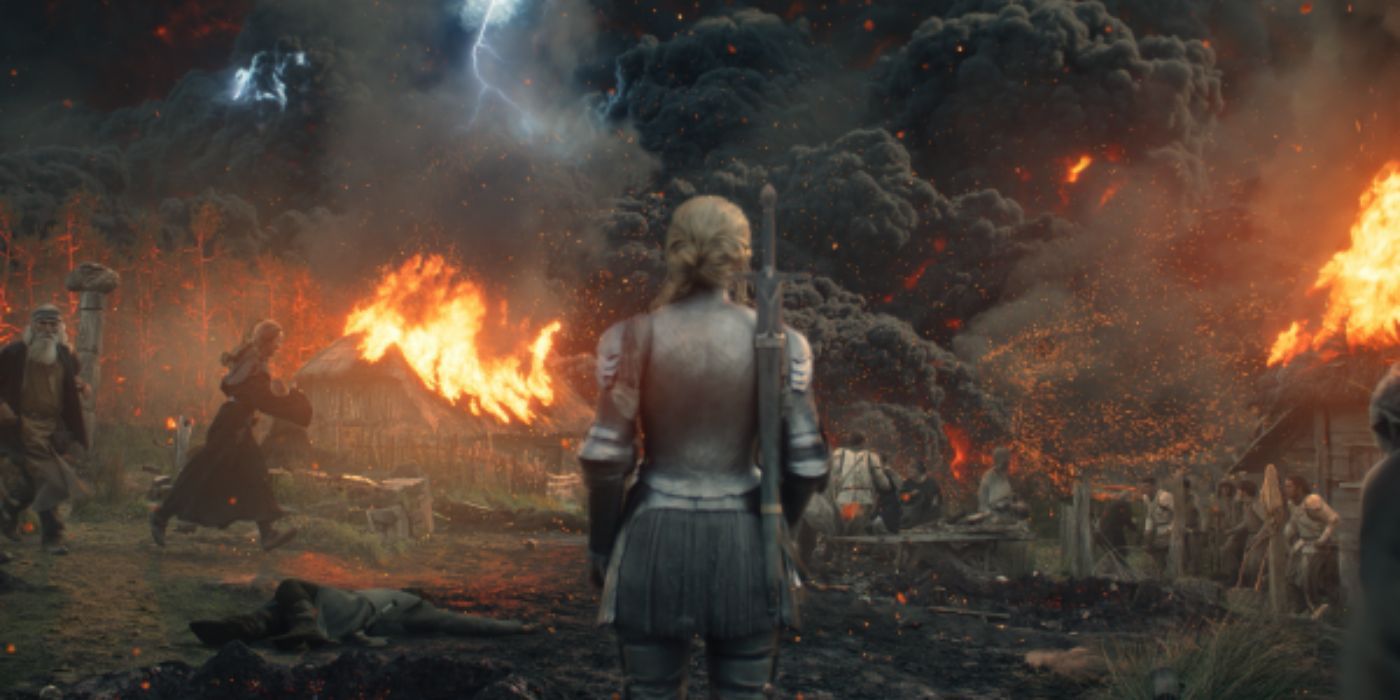




In the first episode of The Rings of Power, fans are only given a brief exposition of whom the first Dark Lord is and his relation to Sauron (Charlie Vickers). Season 2 references Sauron’s master once again by using Morgoth’s crown as a symbol of his legacy, the driving force behind Adar’s malice, and the fate of Galadriel (Morfydd Clark) in the last episode, “Shadow and Flame.” It is crucial, however, to understand that Morgoth’s evil-doings paved the path for the Third Age and Sauron’s defeat.
According to The Silmarillion, Morgoth was one of the Ainur, divine beings created by Eru Ilúvatar (the supreme deity in Tolkien’s legendarium). Among these beings, the most powerful were the Valar, and Morgoth (known initially as Melkor) was the greatest of them all. He was imbued with extraordinary powers, and his intellect, strength, and ambition surpassed any of the other Valar. In the beginning, Melkor’s mind was filled with the desire to shape and control the world, and this thirst for power soon became his downfall.
Melkor participated in the Music of the Ainur, a celestial symphony that built the blueprint of the universe. While the other Ainur followed Eru’s harmonious theme, Melkor sought to include his own discordant vision, a desire for domination. Though Eru allowed Melkor’s disruptions to be woven into the greater design of Arda, the discord he added marked the beginning of his descent into evil.
Once the physical world, Arda, was created, Melkor entered it with the other Valar. However, his lust for control led him to rebel against the Valar. In his growing madness and jealousy of Eru’s power to create life, Melkor defied the divine order, seeking to impose his will upon creation. The name Morgoth, meaning “Dark Enemy of the World,” was given to him by Fëanor, the most gifted of the Elves and creator of the Silmarils, the jewels that would play a central role in the first great wars.
Morgoth coveted the Silmarils because they contained the light of the Two Trees of Valinor, which he had destroyed in an act of malice. His theft of the Silmarils from Fëanor spurred the Elves to wage a long, brutal war against him — the War of the Jewels. Over time, Morgoth’s evil corrupted not only his spirit but his very being. Sauron, who would rise to become the Lord of the Rings, was one of Morgoth’s most loyal servants, learning much of his cruelty from his master.
Morgoth Was Defeated in the War of Wrath and Banished into the Void
The First Age was defined mainly by Morgoth’s destructive tyranny, where he ruled from his fortress, Angband. He then waged war against the Elves and the Men, seeking total control of Middle-earth. Morgoth’s reign of terror finally came to an end in the War of Wrath, which was the cataclysmic final conflict touched on in the pilot episode of Rings of Power.
The Valar launched an assault on Morgoth with the aid of the Elves and men, who remained loyal to them. Despite his immense power and vast army, Morgoth was ultimately overthrown. He was captured and bound with the Angainor chain, and for his crimes, he was cast into the Void, a place of eternal nothingness outside the physical world. Though Morgoth was defeated, his evil left a lasting scar on Middle-earth, and his influence persisted long after his banishment.
Morgoth’s corruption of Sauron ensured that evil remained a constant threat in Middle-earth for ages. Although powerful in his own right, Sauron was only a shadow of his former master, but he carried forward Morgoth’s ambition for control and his hatred for all free peoples. As the first Dark Lord and the source of much of the evil that plagues Middle-earth, his story is one of a tragic fall from grace, as his desire for power ultimately led to his downfall. Even after his defeat, Morgoth’s influence continued to frame the course of history in Tolkien’s books, making him one of the most pivotal figures in the franchise.





